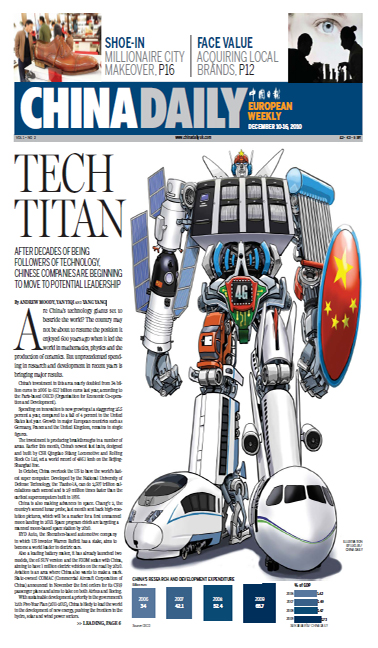Iran blames Israel after nuclear scientist killed
Updated: 2010-11-30 06:28
(Agencies)
TEHERAN, Iran- Iran's president accused Israel and the West of being behind a pair of daring bomb attacks that killed one nuclear scientist and wounded another in their cars on the streets of Teheran on Monday. He also admitted for the first time that a computer worm had affected centrifuges in Iran's uranium enrichment program.
| ||||
The two bomb attacks occurred when assailants on motorcycles attached magnetized bombs to the cars of two nuclear scientists as they drove to work in separate parts of the capital Monday morning. They detonated seconds later, killing one scientist, wounding another and wounding each of their wives, who were in the cars, Teheran's police chief said.
At least two other Iranian nuclear scientists have been killed in recent years, one of them in an attack similar to Monday's.
The wounded scientist, Fereidoun Abbasi, is on a list of figures suspected of links to secret nuclear activities in a 2007 U.N. sanctions resolution, which puts a travel ban and asset freeze on those listed. The resolution describes him as a Defense Ministry scientist who works closely with Mohsen Fakhrizadeh, believed to head secret nuclear projects. Iranian media said he was a member of the Revolutionary Guard, Iran's strongest military force.
Majid Shahriar, the scientist killed in the bombing, was involved in a major project with Iran's nuclear agency, said the agency's chief, Vice President Ali Akbar Salehi, though he did not give specifics.
"Undoubtedly, the hand of the Zionist regime and Western governments is involved in the assassination," Ahmadinejad told a press conference. He said the attack would not hamper the nuclear program.
Salehi, who was a former teacher of the slain scientist, wept as he went on state TV later to talk of the killing. "They (Iran's enemies) are mistaken if think they can shake us," he said.
Asked about the Iranian accusations, Israeli government spokesman Mark Regev said Israel did not comment on such matters. In Washington, US State Department spokesman P.J. Crowley said, "We decry acts of terrorism, wherever they occur. And beyond that, we do not have any information on what happened."
Meanwhile, Ahmadinejad also acknowledged for the first time that a computer worm affected centrifuges in Iran's uranium enrichment program, which the United Nations has demanded Teheran halt.
Iran has previously acknowledged discovering the Stuxnet worm, which experts say is calibrated to destroy centrifuges by causing them to spin out of control, at its nuclear facilities. But Iranian officials - including Salehi - said it was discovered and neutralized before it could cause any damage, and they accused the West of trying to sabotage Iran's program.
But Ahmadinejad told reporters, "They managed to create problems for a limited number of our centrifuges through the software ... installed on electronic parts. But this (virus) was discovered and the problem was resolved."
He said Iranian experts had learned from the attempt and "this became an experience that stops the path for (sabotage) forever."
Earlier in November, U.N. inspectors found Iran's enrichment program temporarily shut down, according to a recent report by the U.N. nuclear watchdog. The length and cause of the shutdown were not known, but speculation fell on Stuxnet.
Iran's enrichment program is of international concern because the process can create both fuel for an electricity-generating reactor and nuclear warhead material. Iran insists it wants to enrich only to run a nuclear reactor network.
The latest attacks come a day after the release of internal US State Department memos by the whistle-blower website WikiLeaks, including several that vividly detail Arab fears over Iran's nuclear program. In some memos, US diplomats say Arab leaders advocated a US-led attack on Iranian nuclear facilities.
Ahmadinejad dismissed the leaks as "mischief" aimed at damaging Teheran's ties with the Arab world.
Monday's bombings bore close similarities to another in January that killed Teheran University professor Masoud Ali Mohammadi, a senior physics professor. He was killed when a bomb-rigged motorcycle exploded near his car as he was about to leave for work.
In 2007, state TV reported that nuclear scientist, Ardeshir Hosseinpour, died from gas poisoning. A one-week delay in the reporting of his death prompted speculation about the cause, including that Israel's Mossad spy agency was to blame.
There are several active armed groups that oppose Iran's ruling clerics, but it's unclear whether they could have carried out the apparently coordinated bombings in the capital. Most anti-government violence in recent years has been isolated to Iran's provinces such the border with Pakistan where Sunni rebels are active and the western mountains near Iraq where Kurdish separatists operate.
Teheran police chief Hossein Sajednia said no one has been arrested in connection with Monday's attack and no one has so far claimed responsibility.
The bombings both took place in the morning, in locations in north and northeast Teheran that lie about a 15-minute drive apart, without traffic. There were conflicting reports on what time each attack took place.
The slain scientist, Shahriari, was a member of the nuclear engineering faculty at Shahid Beheshti University in Teheran and cooperated with the Atomic Energy Organization of Iran, said Salehi, who heads the organization.
"He was involved in one of the big AEOI projects, which is a source of pride for the Iranian nation," Salehi said, according to IRNA, without giving any details on the project. The AEOI is in charge of Iran's nuclear activities, including its uranium enrichment program.
A pro-government website, mashreghnews.ir, said the wounded scientist, Abbasi, is a Revolutionary Guard member who is a laser expert at Iran's Defense Ministry and one of few top Iranian specialists in nuclear isotope separation- a process needed for a range of purposes, from producing enriched uranium fuel for a reactor, to manufacturing medical isotopes to producing a bomb.
Paper's Digest

Fit for fashion
Traditional dresses are becoming High-End favorites with price tags to match.
China is producing tech leaders
Coffee giants rush for prime plantations
Printing revolution
Specials

The naked truth about nude art
A growing number of Chinese people are now choosing to go nude for posterity, particularly young women and new brides.

Past Perfect
Management consultant delves into Chinese history and five-year plans to find clues to nation's future.

Dream walker
Norwegian Robert Loken knows that a journey of a thousand miles begins with a single step but in his case it was a sojourn of 6,000 kilometers.



